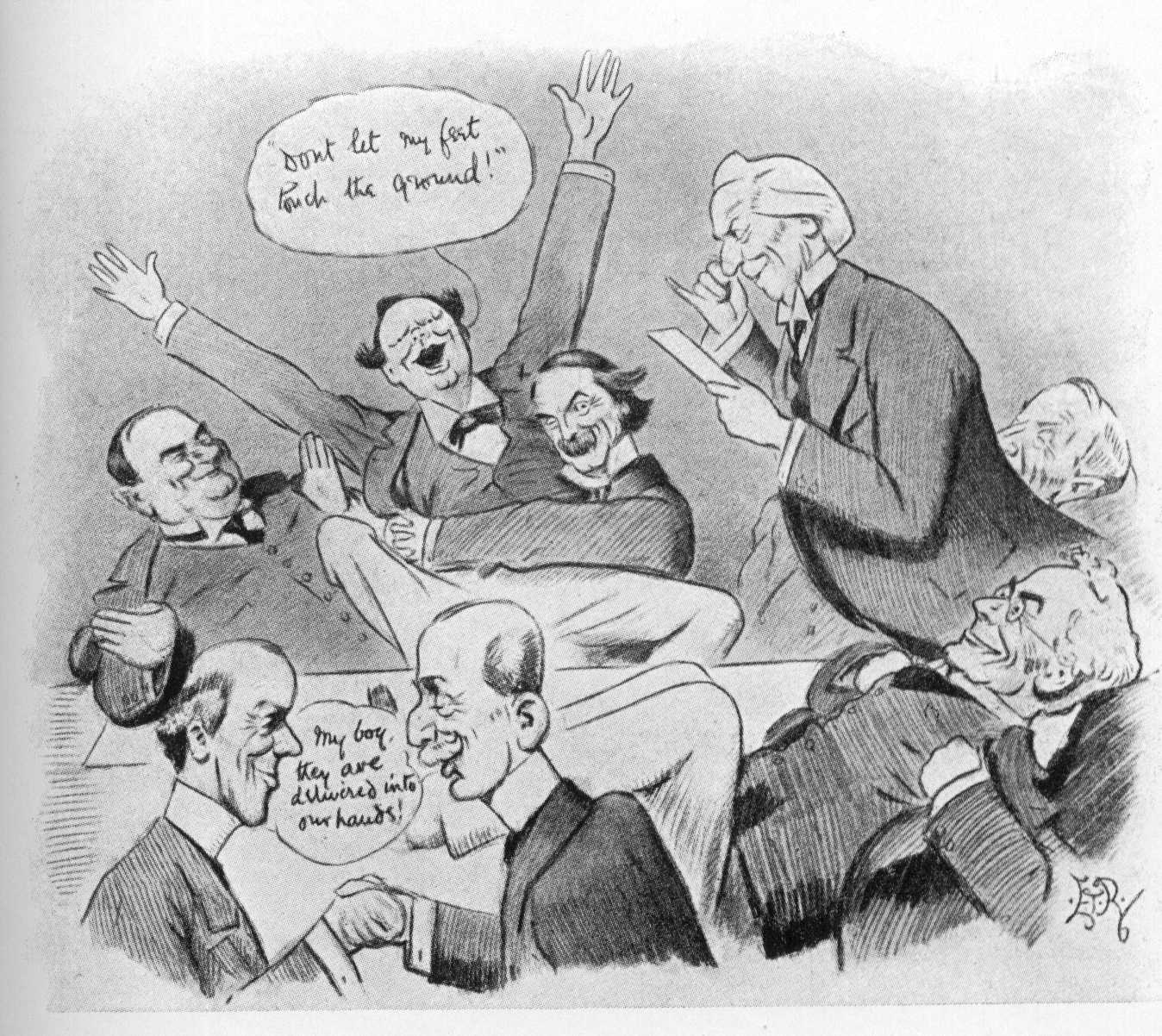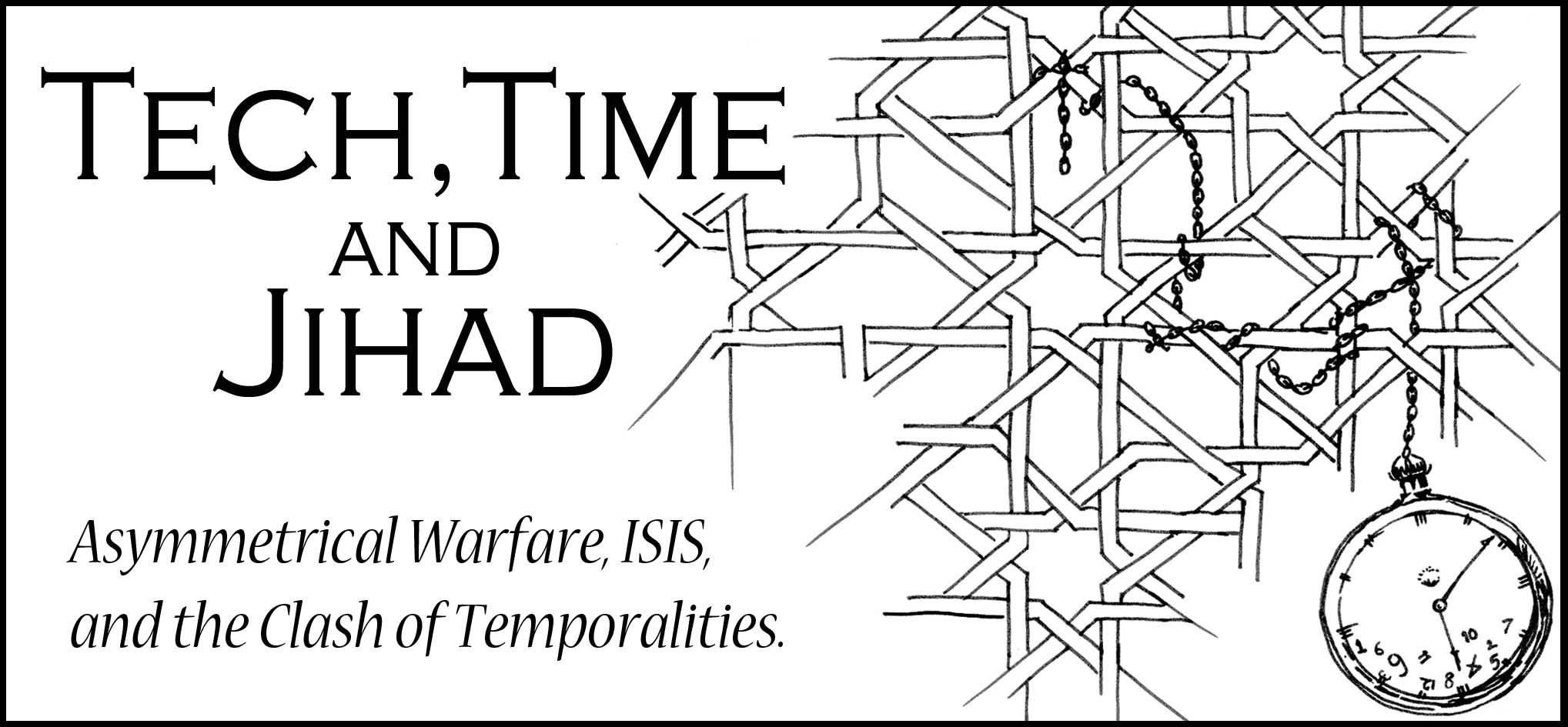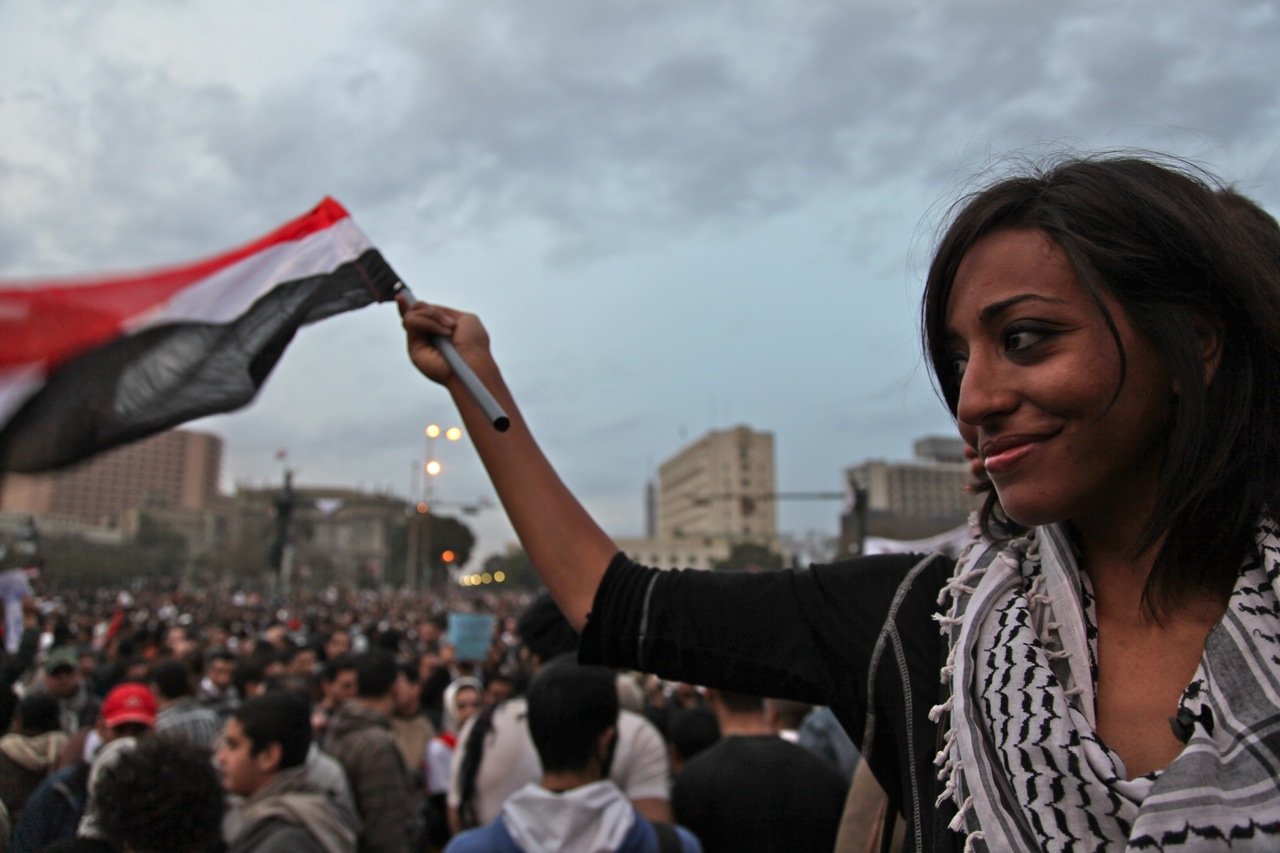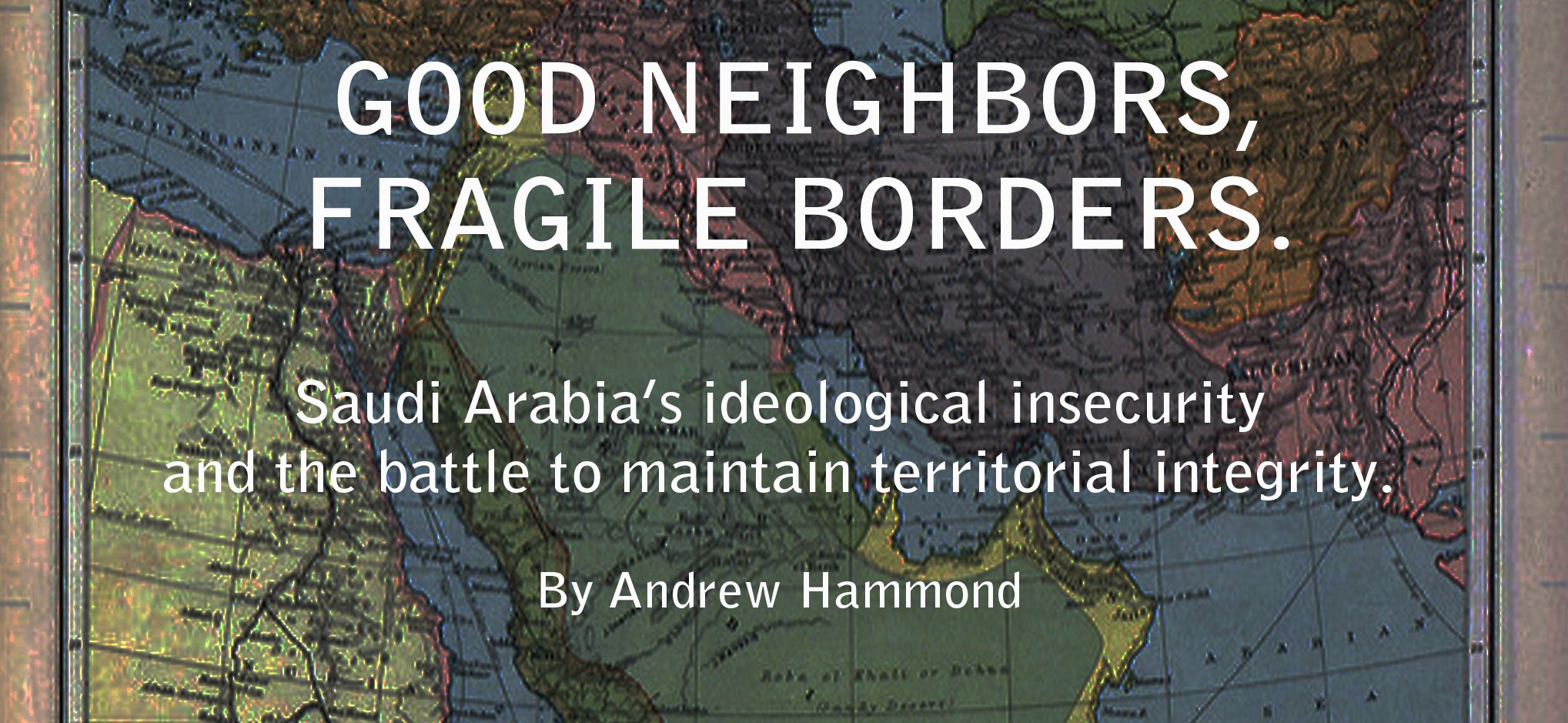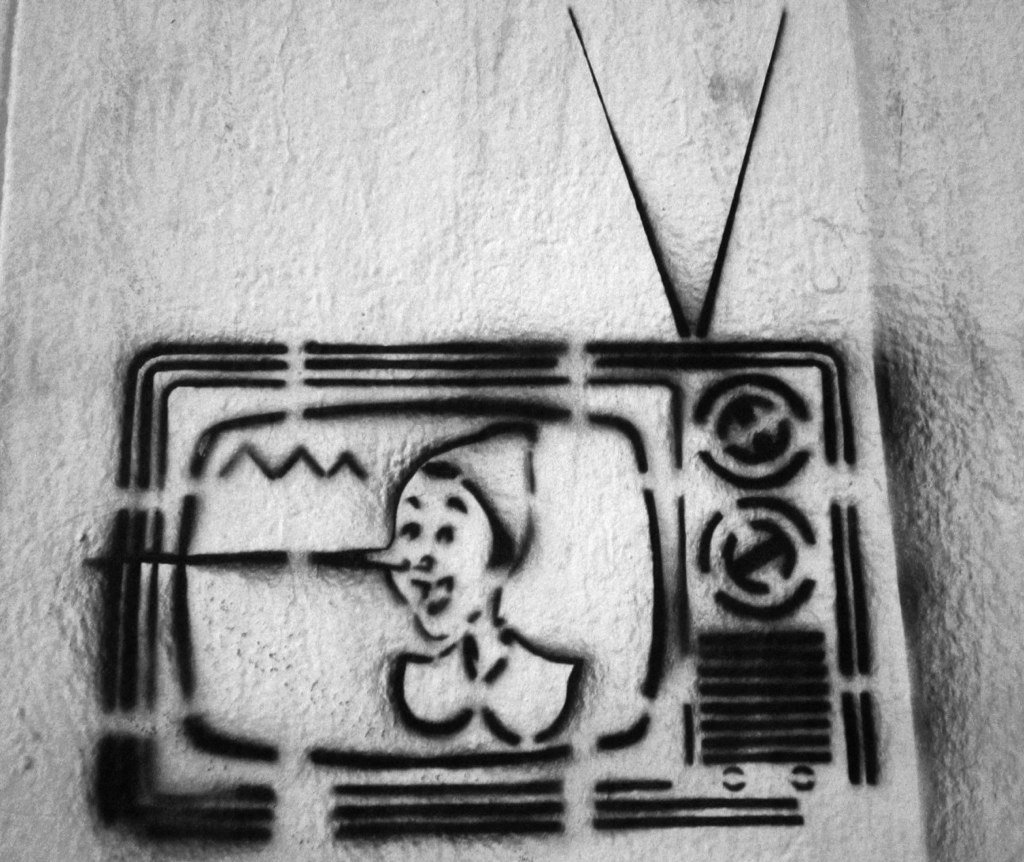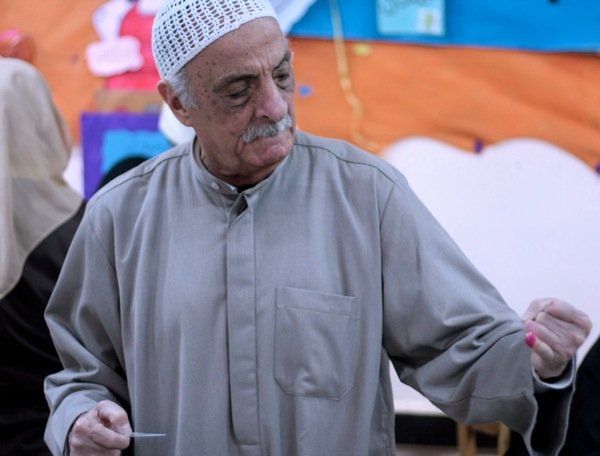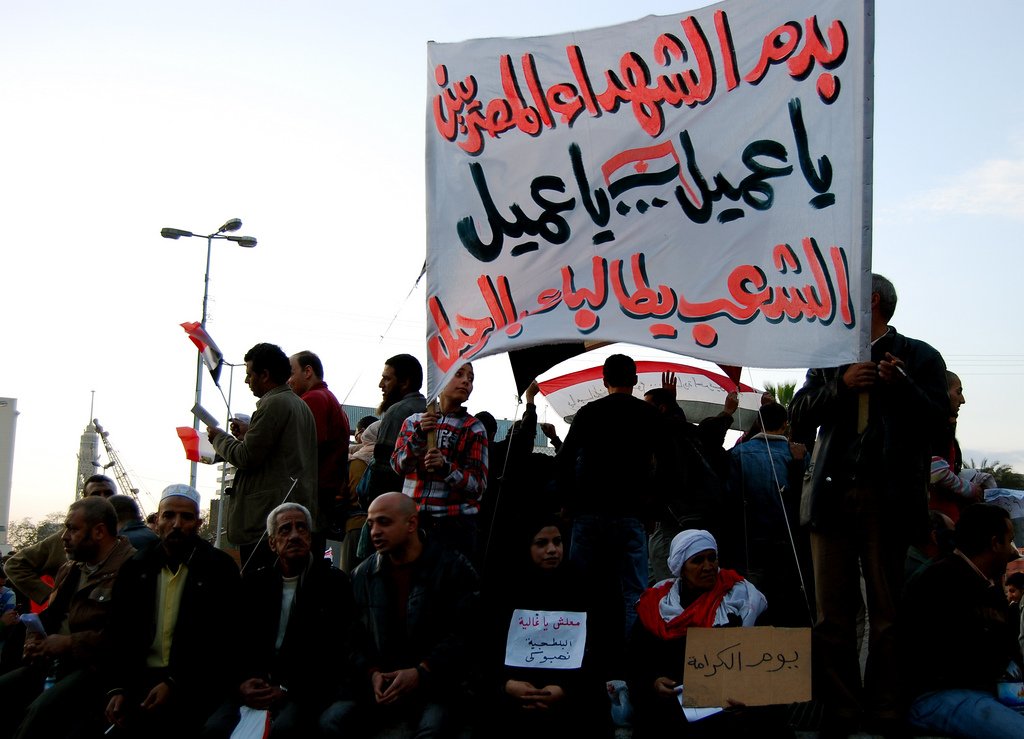May 16, 2016—Egypt's Minister of Planning and head of the National Committee for Press and Media Legislation, Ashraf al-Araby, announced the Cabinet's approval of a new bill today. The proposed law includes 230 articles that promise to protect and regulate the work of the media.
Read More »Egyptian President al-Sisi Meets with Intellectuals Amid Rising Concerns over Media Freedom
March 22, 2016—Egyptian President Abdel Fattah al-Sisi initiated an open dialogue today with prominent intellectual figures, according to a statement from the President’s Office. The meeting, which was attended by approximately twenty invitees, marked the inaugural installment of a series of planned national dialogues among politicians, intellectuals, and media workers.
Read More »Tech, Time, and Jihad
On December 28th, 2015, when the Iraqi army felt confident enough of the military situation around Ramadi, the capital of Anbar province, it invited the world’s media to witness the raising of the national flag atop a central administration building. For the Iraqi government, the ejection of ISIS jihadists from …
Read More »BOOK EXCERPT | Media, Revolution and Politics in Egypt
With the demise of the second Arab autocrat within a month, people power seemed on the verge of revolutionizing the Middle East, a region known for its monarchs and presidents for life. Abdalla Hassan's book unpacks Egypt’s media and political dynamics—tracing events leading up to the 2011 revolution, the 18 days of uprising, military rule, an Islamist president’s year in office, his ouster by the army, and the reestablishment of the military presidency. Expanded freedoms of expression, in the press and on the streets, have contracted with the skillful reinvention of repression. This is the story of an uprising.
Read More »Good Neighbors, Fragile Borders
Protect your borders – one critical lesson of the Syrian war that Saudi Arabia is taking close to heart. The Syrian regime proved lethally effective in the art of crushing internal dissent. Its use of informal militias among multiple agencies of security and military, its Arab nationalist propaganda, the projection …
Read More »PODCAST | ISIS, Revolutionary Romance and the Seduction of Social Media
In the 1960s, marginalized and disenchanted by the social order, veteran journalist Abdallah Schleifer joined a rebellious literary movement and became a social revolutionary. Decades later, he reflects on what attracted him to the far left movement. In this excerpt from a longer conversation, Schleifer unpacks what draws marginalized youth to ISIS, articulating that just like the social revolutionary movements of the ’60s, the appeal of ISIS is not ideological, but rather existential.
Read More »Media Privatization and the Fate of Social Democracy in Egypt
Nour Halabi asks why the social democratic aims of the January 2011 Revolution have not been advanced in the four years since. Halabi posits that private media ownership structures established during Mubarak's neoliberal economic reform initiative are largely to blame, arguing that despite the popular demands for social justice, the structure of Egyptian commercialized media inhibited the translation of social justice demands into discussions of economic policy.
Read More »The Counterrevolution Will Be Televised: Propaganda and Egyptian Television since the Revolution
In a short and critical read, Amr Khalifa draws attention to the Egyptian state’s influence on shaping the narratives propagated by national and local media, particularly television. Using initial coverage of the 2011 Revolution as a jumping off point, Khalifa argues that the same mechanisms for controlling the media have been used and reused by successive governments, and reflects on new limitations on freedom of expression, which he argues are more stringent than those seen under Gamal Abdel Nasser.
Read More »Asleep at the Press: Thoreau, the Nuances of Democracy and Egyptian Revolt
Through the lens of Thoreau’s conception of democracy Matthew Crippen investigates the international media’s framing of Mohamed Morsi’s overthrow in the summer of 2013. He questions why much of the Western media and Al Jazeera adopted the uniform narrative that the ouster was a coup and a travesty of democracy, despite its popular support. Without adjudicating whether or not the overthrow was anti-democratic, Crippen posits that the reasoning undergirding the dominant opinion among media pundits that it was remains questionable.
Read More »The Discourse of Egyptian Slogans: from ‘Long Live Sir’ to ‘Down with the Dictator’
El Mustapha Lahlali investigates the power of political slogans in Egypt. By revisiting the discourse of early 2011 and surgically analyzing the linguistic content of a wide array of slogans, Lahlali offers new insight into the political, social and religious undercurrents that reverberated through the country during this time. Lahlali points to a period characterized by the democratization of discourse, which he argues, disappeared as rapidly as it emerged.
Read More » Arab Media & Society The Arab Media Hub
Arab Media & Society The Arab Media Hub

